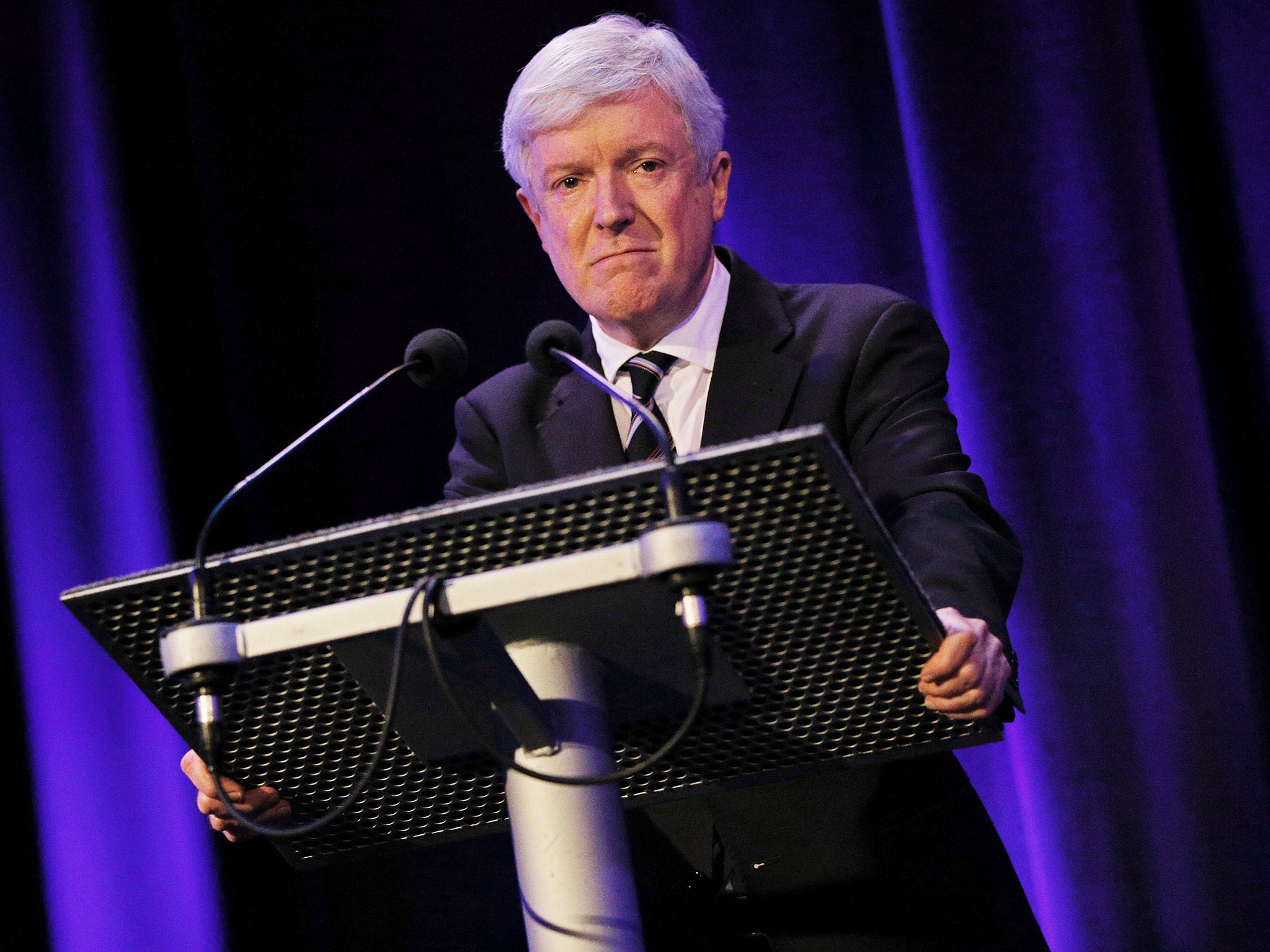BBC director Tony Hall says British television programming declined in past five years
The future of British TV is uncertain if the BBC is allowed to diminish in comparison to Netflix

Your support helps us to tell the story
From reproductive rights to climate change to Big Tech, The Independent is on the ground when the story is developing. Whether it's investigating the financials of Elon Musk's pro-Trump PAC or producing our latest documentary, 'The A Word', which shines a light on the American women fighting for reproductive rights, we know how important it is to parse out the facts from the messaging.
At such a critical moment in US history, we need reporters on the ground. Your donation allows us to keep sending journalists to speak to both sides of the story.
The Independent is trusted by Americans across the entire political spectrum. And unlike many other quality news outlets, we choose not to lock Americans out of our reporting and analysis with paywalls. We believe quality journalism should be available to everyone, paid for by those who can afford it.
Your support makes all the difference.Tony Hall, the BBC Director-General, has highlighted the “long-term decline” in British television programming and highlighted UK content has fallen by 2,000 hours and £250m in investment in the past five years.
Lord Hall painted a dark picture of the future of British TV if the BBC is allowed to diminish in comparison to Netflix and other “global giant” competitors.
He said that a neglected BBC would be at risk of “sleepwalking into decay”, leaving “the UK’s creative industries damaged, and Britain diminished as a result”.
He suggested that such a scenario would result in “a UK dominated by global gatekeepers, partial news, and American taste-makers”.
Speaking at the Media & Telecoms 2016 & Beyond conference in London, Lord Hall noted the rapid rise of Netflix. “When I spoke here last year, Netflix was available in around 60 countries. Now it is in close to 200.”
He pointed out that The Queen, the streaming service’s much-anticipated royal drama starring Claire Foy as Queen Elizabeth II, is “the first programme, by the way, Netflix has made about Britain, out of the vast sums they have spent on content so far”.
Referring to research from media regulator Ofcom, Lord Hall said there were cultural consequences to allowing the BBC to lag behind international rivals.
“As global competition rapidly grows, overall investment in original British content is in long-term decline. Over the past few years – as the BBC’s spending has fallen – it has gone down by nearly £250 million, reducing the volume of new UK content broadcast each year by around 2,000 hours.”
The Director-General stated the case for BBC Studios, his idea for transforming the organisation’s production capabilities by allowing it to make shows for other outlets.
“BBC Studios – and the removal of quotas associated with it – will open us up to the widest and most competitive range of suppliers, and encourage independent producers to bring us their very best ideas,” he said. “Studios is not only the best answer if we are to meet audience expectations while providing them with value for money. It is also the only answer if we are to remain one of the top programme-makers in the world.”
BBC Studios received a setback last week when Peter Salmon, the project’s director, left for a job in the independent production sector.
Join our commenting forum
Join thought-provoking conversations, follow other Independent readers and see their replies
Comments